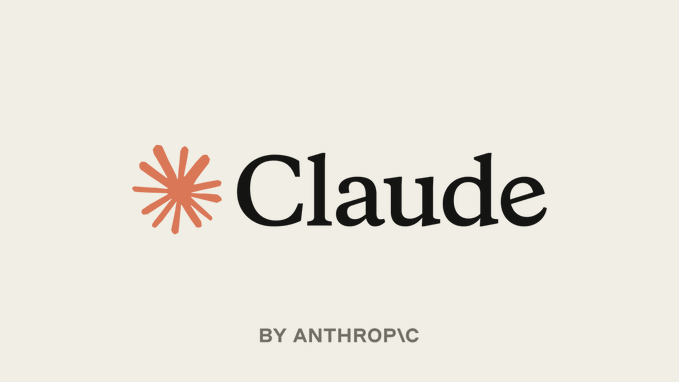Picture this: You’re staring at a tangle of code that’s got you swearing at your screen, deadlines looming like storm clouds, and suddenly—bam—your AI buddy spits out a fix faster than you can grab a coffee refill. No lag, no wallet-draining bill, just pure, electric efficiency. That’s the vibe Anthropic just unleashed with Claude Haiku 4.5, their latest pint-sized powerhouse of a language model that hit the scene yesterday. It’s not the biggest kid on the block—that crown still goes to the beefy Claude Sonnet 4.5—but damn if it doesn’t punch way above its weight, making high-end AI feel accessible for the rest of us mortals who aren’t swimming in venture cash.
Anthropic, the safety-obsessed AI outfit co-founded by ex-OpenAI rebels, has been on a tear lately. Just two weeks back, they crowned Sonnet 4.5 as the “world’s best coding model,” a beast that’s all about tackling the thorniest dev puzzles. But Haiku 4.5? It’s the scrappy underdog that delivers 90% of that flagship smarts at a fraction of the fuss—and the price. Think of it as the economy car that corners like a sports coupe: zippier, cheaper, and surprisingly tough on the track.
Let’s break down why this matters, because buried in the tech jargon are real-world wins backed by cold, hard numbers. On SWE-bench Verified, a brutal test of real coding headaches like debugging massive repos, Haiku 4.5 clocks in at 73.3%—neck-and-neck with Sonnet 4 and even edging out GPT-5 in some runs, all without fancy extras like extra compute time. Over on Terminal-Bench, which throws curveballs like command-line wizardry, it hits 41%, matching heavyweights like Gemini 2.5. And get this: It straight-up laps Sonnet 4 on multi-agent collabs and computer-use tasks, where bots team up to wrangle apps or sift through your desktop chaos. We’re talking 2-5x faster inference speeds, with response times so snappy that in live chats or IDE sessions, it feels like the AI’s sitting right next to you, not phoning it in from the cloud. Compared to its predecessor, Haiku 3.5, latency’s down 60-70%, turning what used to be a slight pause into “virtually zero” wait.
But here’s the heart of it: Haiku 4.5 isn’t just quick—it’s clever in ways that make coding feel less like herding cats and more like jamming with a pro bandmate. Optimized for “agentic” workflows, it self-corrects on the fly, juggles multi-file projects without breaking a sweat, and groks those sneaky contextual ties that trip up lesser models. Fire up tools like shell commands or file edits? It invokes them instantly, no hand-holding required. In setups like Warp terminal or Anthropic’s own Claude Code, it’s a game-changer—code gen and tweaks land in seconds, blurring the line between “AI help” and “real-time co-pilot.” Folks at Shopify are already raving: “It delivers intelligence without sacrificing speed,” says engineer Ben Lafferty, who’s probably saved hours of midnight debugging. And Zencoder’s CEO Andrew Filev? He’s clocking it at 4-5x the zip of Sonnet 4.5, unlocking “entirely new use cases” for devs who can’t afford to wait.
The kicker? It’s dirt cheap. At $1 per million input tokens and $5 for output, it’s a steal—one-third the tab of Sonnet 4.5 and nippier than GPT-4 Turbo or Gemini 1.5 Pro. That’s not hype; it’s a deliberate play to flood the market with smart AI that doesn’t bankrupt you. Anthropic’s even making it the default for free Claude.ai users, a bold move that’s got the tech crowd buzzing about “democratizing frontier intelligence.” On X, reactions are pure fire: One dev marveled that it “absolutely COOKS with web design,” hitting Sonnet-level quality at bargain-basement rates. Another called the specs “impressive,” hyping how speed plus affordability could trump raw power in the trenches. Even the quiet drop—no fanfare, just bam, it’s there—feels like Anthropic’s flex: We’re shipping so fast, we don’t need the hype reel.
Safety’s no afterthought either, which is Anthropic’s whole schtick. Haiku 4.5 aces their alignment evals, outshining even Sonnet 4.5 and Opus 4.1 with fewer “misaligned” slip-ups and rock-bottom risks on sketchy stuff like CBRN threats. It’s cleared for ASL-2 release, meaning it’s potent but not the wild west. In a world where AI oopsies make headlines, that’s the kind of reassurance that lets you sleep at night.
So, ready to unleash this beast? It’s stupidly easy, even if you’re more “ChatGPT for grocery lists” than full-time hacker. Start free at claude.ai—Haiku 4.5’s your default now, so just type away in the chat for instant brainstorms or code snippets. Devs, snag the API with the “claude-haiku-4-5” tag; pricing kicks in only when you scale up, and it’s live on Amazon Bedrock or Google Vertex AI for enterprise muscle. Want it in your IDE? GitHub Copilot’s rolling it out in preview—flip to it in the model picker from VS Code’s chat or agent mode, and if you’re on Enterprise, nudge your admin to enable it. For coding marathons, dive into Claude Code: Prompt it with “Refactor this multi-file mess” or “Run tests and fix breaks,” and watch it orchestrate like a pro. Pro tip: Chain it with Sonnet for big-picture planning—Haiku handles the grunt work in parallel, turning hours into minutes. Tweak your prompts for context (e.g., “Consider these deps: …”) to max out that self-correction magic.
In the end, Haiku 4.5 isn’t just an update—it’s a signal that AI’s getting nimbler, fairer, and way more fun. As one X poster put it, “Claude is coming for SMBs,” and honestly? About time. If this keeps up, your next side hustle might just code itself.

